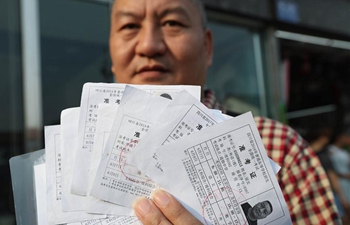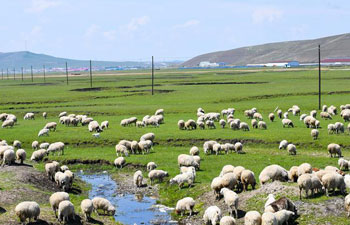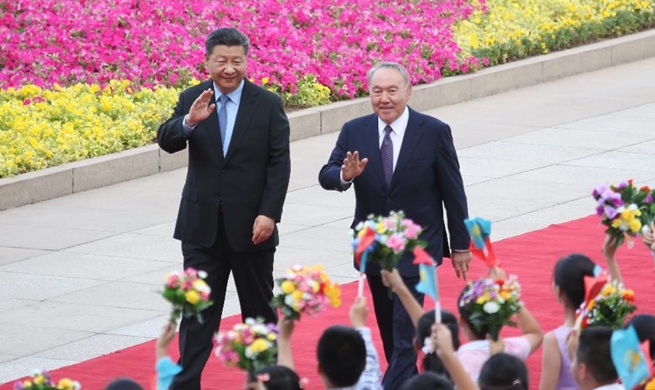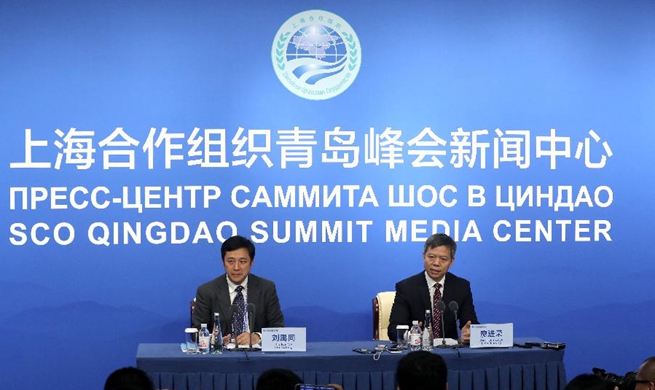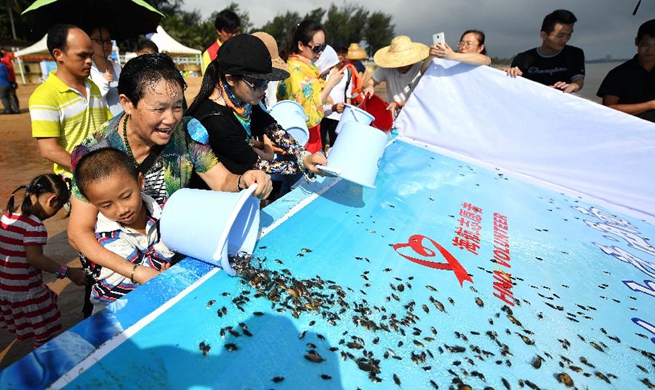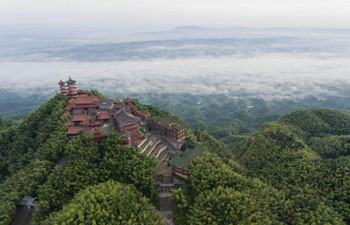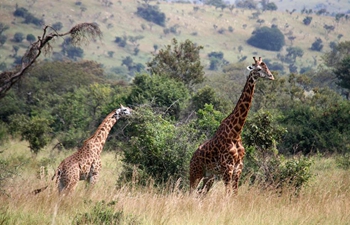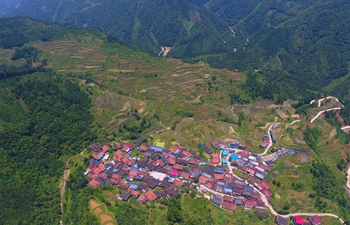by Burak Akinci
ANKARA, June 7 (Xinhua) -- After a military campaign in Syria, Turkey has stepped up its presence in northern Iraq against Kurdish rebels, ready to target their stronghold in Qandil, located some 40 km southeast of the Turkish border with Iraq's Erbil Province, but analysts say this potential move has serious security risks.
Several Turkish soldiers have been killed in the region in the recent months during clashes with Kurdistan Workers' Party (PKK), although the authorities remain vague over where the low-profile operation is taking place.
Blacklisted by Ankara and its Western allies, the PKK has been engaged in a bloody insurgency against the Turkish government since 1984.
Independent reports say several thousands of Turkish commandos have entered up to 30 km inside Iraq to establish control points and are expected to set a buffer zone in the near future.
In a mass gathering on Tuesday during his campaign for re-election, Turkish President Recep Tayyip Erdogan vowed to continue the fight in Syria and Iraq "until the last remaining terrorist ... is eliminated," promising to send the army and the air force to areas of concern when needed.
Experts say the Iraqi military operation is part of Turkey's integrated policy to remove all security threats from the PKK and its affiliates in a broad territory ranging from western Syria to eastern Iraq.
The Turkish army, backed by Syrian rebels, launched Operation Olive Branch on Jan. 20 against U.S.-backed Kurdish People's Protection Units (YPG), which Ankara sees as a terror group linked to the PKK.
Last week, Erdogan said "peace and security have returned in Afrin," which is now controlled by Syrian rebels after a successful operation.
Early this year, the Turkish strongman threatened to push the offensive further east to Syria's Manbij, where U.S. forces are stationed, risking confrontation between the two NATO allies.
On Monday, Washington and Ankara ultimately agreed on a plan to withdraw the YPG from the city as a step toward resolving the tense dispute in their ailing bilateral relations.
"This is part of an integrated plan to eradicate the threat that the PKK poses for Turkey. In northern Syria's Afrin, the Kurdish militia linked to the PKK has been neutralized. Now it's turn to target the PKK in Iraq so it can do no further harm," said Oytun Orhan, an analyst from the Ankara-based think thank ORSAM.
According to Orhan, the Turkish military would not seek to capture the entire rugged Qandil region given the geographical reasons, but prefer to encircle strategic positions to prevent the PKK's cross-border attacks into Turkey, and "jail the leadership and the bulk of the rebels there."
Turkish Interior Minister Suleyman Soylu told state-run Anadolu Agency that the target in Iraq is the Qandil Mountains, the PKK's key military base.
"Right now several areas were taken under control, especially in northern Iraq," Soylu said, suggesting that a move toward Qandil, where the leadership of the PKK is located, may be on the agenda, as some 5,000 rebels are believed to be based in the region where they launch operations against army positions inside Turkey.
On Monday, Turkish Deputy Prime Minister Bekir Bozdag also said his country reserves the right to launch an operation in Iraq's Qandil, and and "will do so any time it deems necessary."
Turkey has conducted frequent airstrikes against PKK targets in northern Iraq since the 1990s in hot pursuit of terrorists there.
"We are now following the in-depth operation in northern Iraq. Don't be surprised if the flag goes up in Qandil before the elections, and if the region that has been used as a hotbed of terrorism for years is cleared," said Ibrahim Karagul, a political analyst and journalist working for the pro-government Yeni Safak Daily.
"But the real operations will come after the elections. That is when Turkey's voice will rise" when the country will shift to a presidential system, he added.
Meanwhile, Orhan said the ongoing operation in Iraq is rooted more in security concerns than political motivations ahead of the elections on June 24.
"Ankara has always said it wants to cut off the routes used by the PKK to infiltrate from Iraq into Turkey and it's doing just that," he said.
"Because of operations launched in Syria, in (southeastern) Turkey and now in Iraq, the PKK has lost considerable amounts of man and arms and really can't hold its head up high," added the expert.
But for Serkan Demirtas, another political analyst, the assault in Qandil remains in its early stages and could only be launched in the coming months even if it is being planned.
"Qandil is a very difficult terrain and it's impossible to control it, so there is a lot of preparations needed to ensure that if an attack is launched it would be successful," said Demirtas, also the Ankara Bureau chief of Hurriyet Daily News.
"I don't think that a major offensive will be launched imminently and before the elections," he noted.







